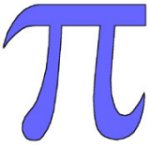
Worksheets and No Prep Teaching Resources
Reading Comprehension Worksheets
History of Mathematics

History of Mathematics
 Worksheets and No Prep Teaching Resources Reading Comprehension Worksheets History of Mathematics |
 History of Mathematics |
| edHelper's suggested reading level: | grades 9 to 12 | |
| Flesch-Kincaid grade level: | 10.57 |
|
Proofs and Pythagoras - Greek Mathematics
By Colleen Messina |

|
 1 In the high mountains of Greece in the northeastern part of the Mediterranean, a civilization was born that influenced the world for centuries. Ancient Greece made great strides in the areas of art, philosophy, and politics, and its civilization lasted from approximately 2000 BC to 300 BC. Greece also produced some of the finest mathematical minds that ever pondered numbers. The Greeks were the first people of the ancient world who systematically studied geometry, which is the study of the size and shape of an object. While the first surveyors of Egypt understood practical elements of geometry, the Greeks asked why these applications worked. The Greeks wrote down rules for geometry that verified the observations of other ancient mathematicians.
1 In the high mountains of Greece in the northeastern part of the Mediterranean, a civilization was born that influenced the world for centuries. Ancient Greece made great strides in the areas of art, philosophy, and politics, and its civilization lasted from approximately 2000 BC to 300 BC. Greece also produced some of the finest mathematical minds that ever pondered numbers. The Greeks were the first people of the ancient world who systematically studied geometry, which is the study of the size and shape of an object. While the first surveyors of Egypt understood practical elements of geometry, the Greeks asked why these applications worked. The Greeks wrote down rules for geometry that verified the observations of other ancient mathematicians. |
Create Weekly Reading Books
Prepare for an entire week at once! |
| Leave your feedback on Proofs and Pythagoras - Greek Mathematics (use this link if you found an error in the story) |
 |
History of Mathematics
|
 |
High School Reading Comprehensions and High School Reading Lessons
|
 |
Social Studies
|